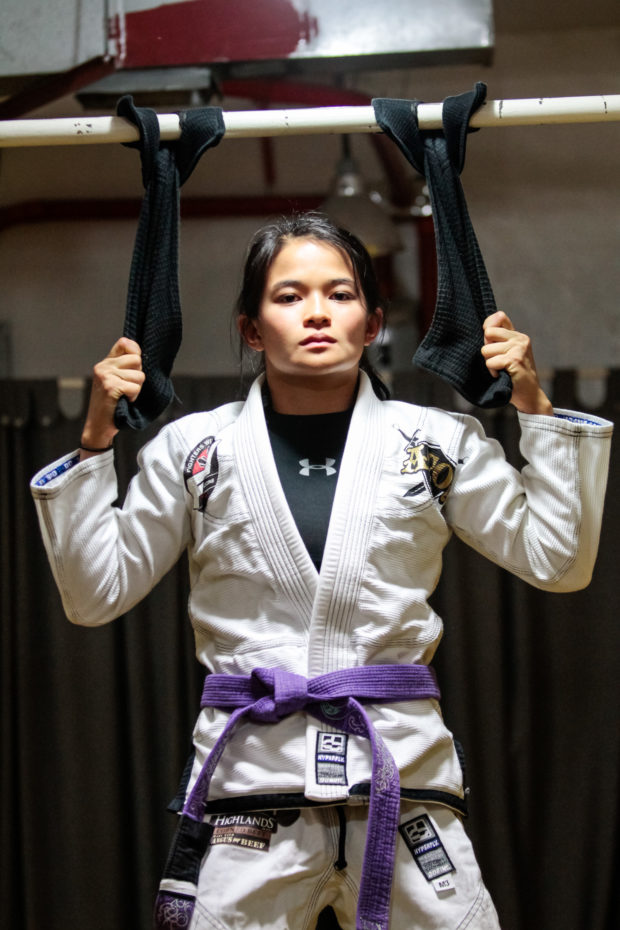Meggie finds way to continue teaching her sport
It has been 23 days since Meggie Ochoa, the Philippines’ jiujitsu queen, has had a practice session.
Nearly every establishment in the capital had been shuttered by the enhanced community quarantine following the uptick in coronavirus disease (COVID-19) cases here. No gyms. No training partners.
“Jiujitsu is a contact sport, and [during this pandemic], social distancing is strongly encouraged,” she told the Inquirer.
Not everyone, Ochoa, pointed out, has a mat at home, let alone a knowledgeable partner to train with.
“Others, they do workouts,” she said. “[For me], every day, I do body weight circuit and mobility exercises.”
So she gets antsy. And it’s not just over the lack of mat sessions. It’s also the fact that the current situation has prevented her from teaching the sport.
“It’s even harder for me since that’s what I’m most passionate about,” she said.
The Asian Games bronze medalist and Southeast Asian Games gold winner has managed to find a way around the lack of activity. Ochoa said she has begun teaching the sport to her family driver’s children.
“Actually today was their first session,” she said.
And there are also the youngsters from her advocacy, Fight to Protect (FTP), who now do “modified training.”
“We have video calls with the kids. We can’t really teach jiujitsu to them since I can’t teach just by myself. So we lead workouts. Then at least, I get to check up on the kids, so we’re still able to maintain our relationships with them,” she added.
FTP looks after victims of sexual abuses, online exploitation and also abandoned or orphaned children.Ochoa said teaching these children takes on a special approach because they are being reintroduced to the idea of “touch.”
“To survivors of abuses, there is a negative connotation to the idea of ‘touch,’” she said. “And touch is [an essential part of] jiujitsu.”
“The sport eases these children to the concept in a positive way—a way that does them no harm,” she said. “And that’s what we can’t really do right now.”

